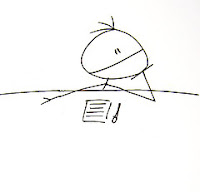 I don't know about you, but I'm exhausted after all those EQUIP book club posts! My copy of When I Don't Desire God is looking very dog-eared, not to mention thoroughly scribbled in.
I don't know about you, but I'm exhausted after all those EQUIP book club posts! My copy of When I Don't Desire God is looking very dog-eared, not to mention thoroughly scribbled in.What a month it's been! While I've been writing about prayer and the Bible and rest and walking in God's world, these are exactly the things I haven't had much time for! It's a relief to get back to my normal routine. You can probably expect a quiet week on this blog.
In the meantime, if you'd like to learn more about joy, or keeping the cross central, or engaging with the Bible, or prayer, or enjoying God's world, or depression, you don't need to read When I Don't Desire God: many of the posts stand alone. Here's some quick links for you to follow.
an overview
does God really want me to feel joyful?
when I don't desire God
why joy is both a gift and a fight
keeping the cross central
4 weapons for the fight for joy
1. preaching the gospel to ourselves
2. reading, reflecting on and remembering the Bible
3. prayer
4. enjoying God's world and keeping our bodies fit for joy
depression
my story of joy
I hope you'll join me in the fight for joy!


























